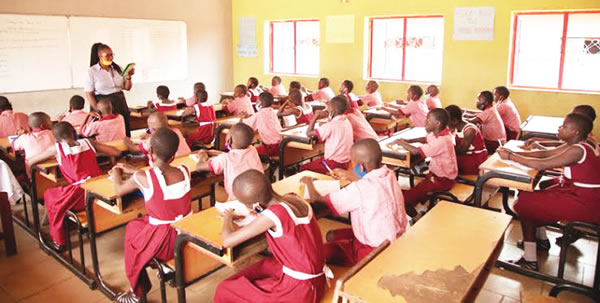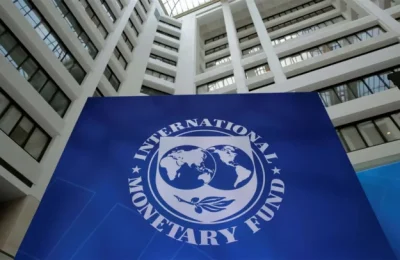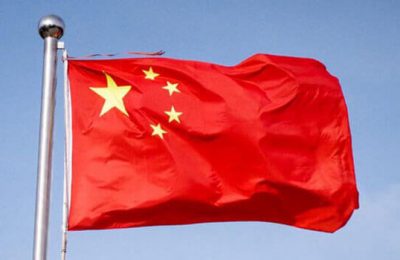
Following the development of National Language Policy by the Federal Government, stakeholders in the education sector have commenced advocacy for Nigeria to adopt indigenous language in teaching of children and learning in classrooms.
The National Language Policy (NLP) in Nigeria was announced in November 2022 by the former Minister of Education, Malam Adamu Adamu.

He had championed the paradigm shift, advocating the use of indigenous languages as the primary medium of instruction in primary schools.
The national language policy requires that the mother tongue or Language of the Immediate Community (LIC) be the language of instruction for all six years of primary school.
The NLP was approved by the Federal Ministry of Education (FME) through the Nigerian Education Research and Development Council (NERDC).
The policy’s goal is to promote and enhance the use of all Nigerian languages of which there are over 625 varieties.
Other documents that contain language policy provisions in Nigeria include:
The National Policy on Education (2014), the National Cultural Policy (1988) and the National Broadcasting Code of 2016 (amended in 2020).
Nigeria’s official language is English, but it is spoken less frequently in rural areas and among people with lower education levels. Other major languages spoken in Nigeria include Hausa, Yoruba, Igbo, Fulfulde, Ibibio, Kanuri and Tiv.
Other stakeholders have also joined in the advocacy, with Professor Kabiru Isyaku, saying that the emergence of the National Language Policy was a welcome development.
He revealed that almost all the developed nations use their indigenous language in teaching and learning.
Isyaku said: “There is no developed nation that is using a foreign language to develop. Not a single one in the whole world”.
When asked if Nigeria had the resources and personnel to carry out the teaching of indigenous languages, especially when some languages have gone into extinction, Professor Isyaku said Nigeria has the capacity.
He stated rhetorically, “so why don’t we use the languages that are not in extinction?” adding; “we have them. We can start, if we don’t start, we will never go forward.
“Countries like Japan, Russia, and China are not teaching in English. Likewise in Egypt, they communicate with sick people in Arabic. In Brazil they don’t permit foreign language, but their own language.
“If we want to develop, we must use our indigenous language. It is easier to think, express and of course produce in your language.
“The government has already approved that from the primary level up to university, we can interchange. There is a national language policy on this already. So, as I’m teaching technology, I can mix my English with the language of that particular environment so that the learners can understand. That is the issue,” he said.
National Librarian and Chief Executive of National Library of Nigeria (NLN), Professor Chinwe Anunobi also emphasised the importance of teaching children in indigenous language.
She disclosed that as part of the celebration of the 60th anniversary of the National Library of Nigeria, a compendium of letters and alphabets of indigenous languages would be presented to the public.
According to her, as part of efforts to support implementation of the use of indigenous language as medium of instruction in schools, NLN which is the repository of publications in Nigeria was able to find only 5000 publications written in indigenous languages.
She said: “The former Minister of Education made a policy that Nigerians in basic schools should be taught with the language of their immediate environment. And said how can this be implemented? So, we zeroed into our collection because we are the heritage; we are the repository of publications in Nigeria and we were able to find only 5000 publications written in indigenous languages.
“Other countries are trying to preserve their indigenous language because you cannot transform a nation without the language of the people.
Read Also: Bank capitalization: N1.7trn raised through e-offering, says SEC
“Think of all these advanced countries, developed countries, big economies; they are using their own language. Think of China, even Britain, that is our master, that’s their language. Then America, Japan have their own languages. When I went to Sweden and they were speaking, I thought Sweden was English speaking. English is their second language. All these European countries have their own language.
“So any country that is going to be great must educate their people in their indigenous language and that’s what we found and we started promoting it, observing the international, but above all we did a survey and came up with the map of Nigeria’s indigenous language.
“So we are going to showcase it during the exhibition and then what we are doing now, the compendium of alphabets and numerals in indigenous language, those that have an autograph, we are compiling them so that at least we have it. Then if they die, because many of them are dying, you know that there was some time this language did exist,” she stated.







